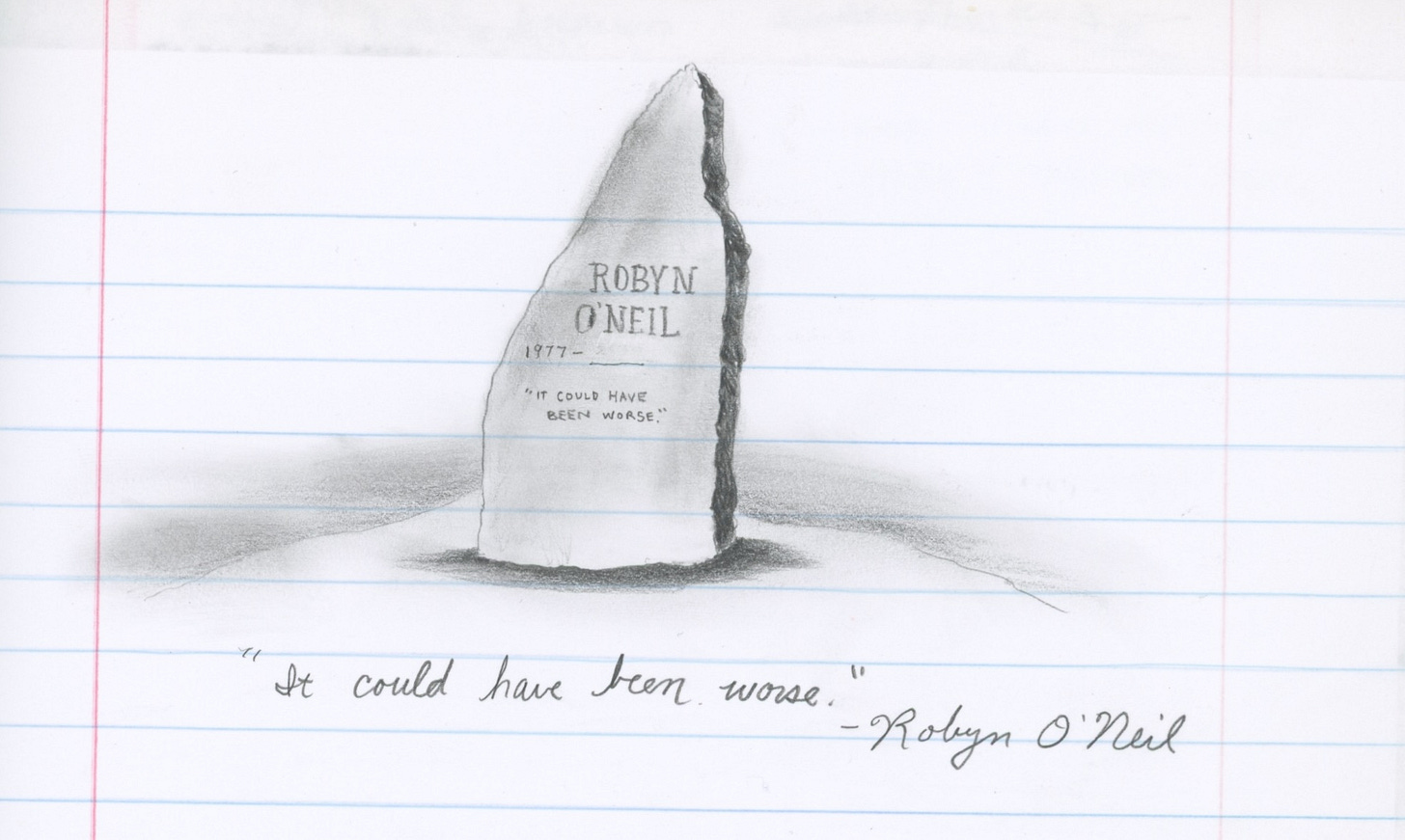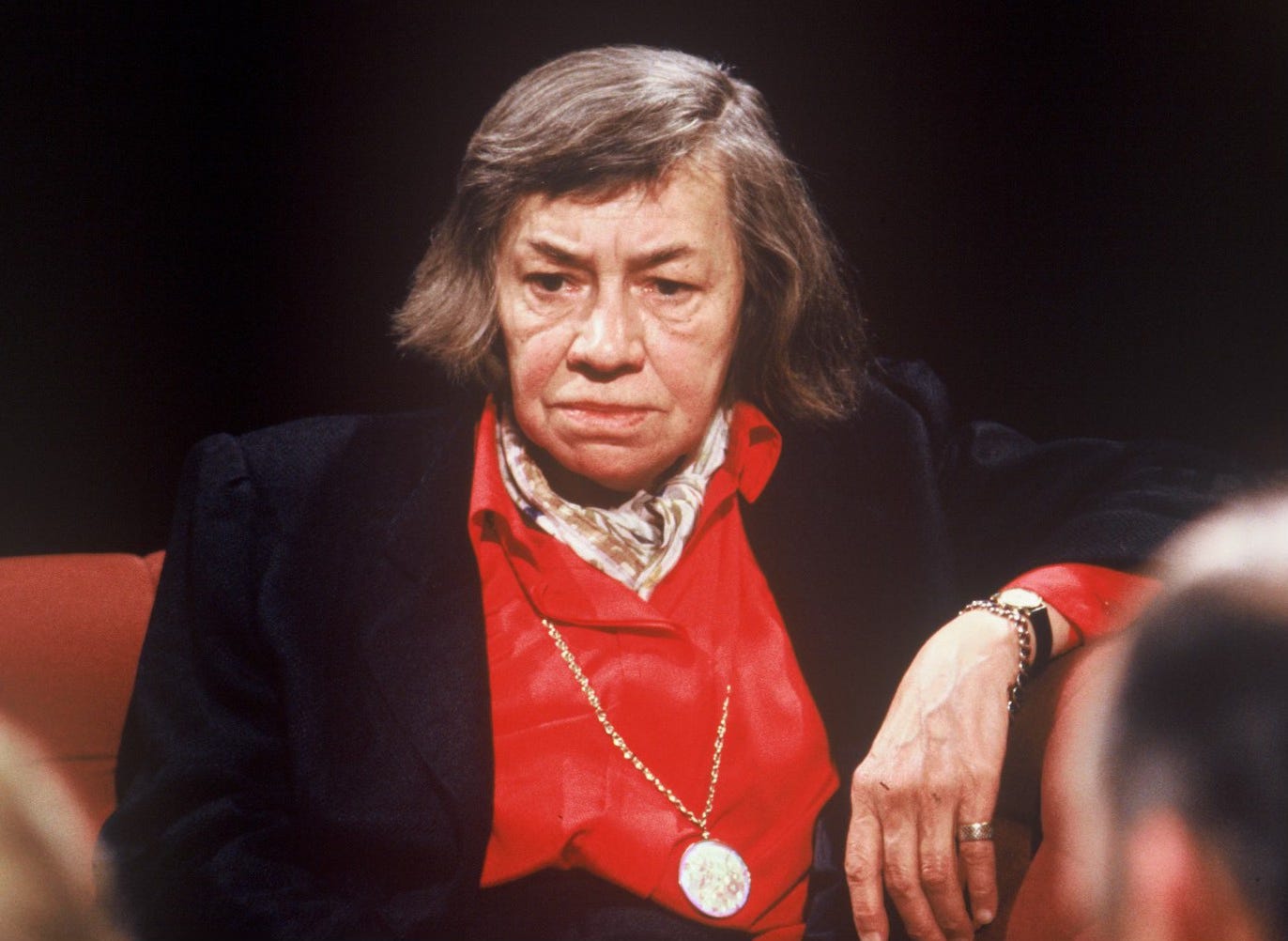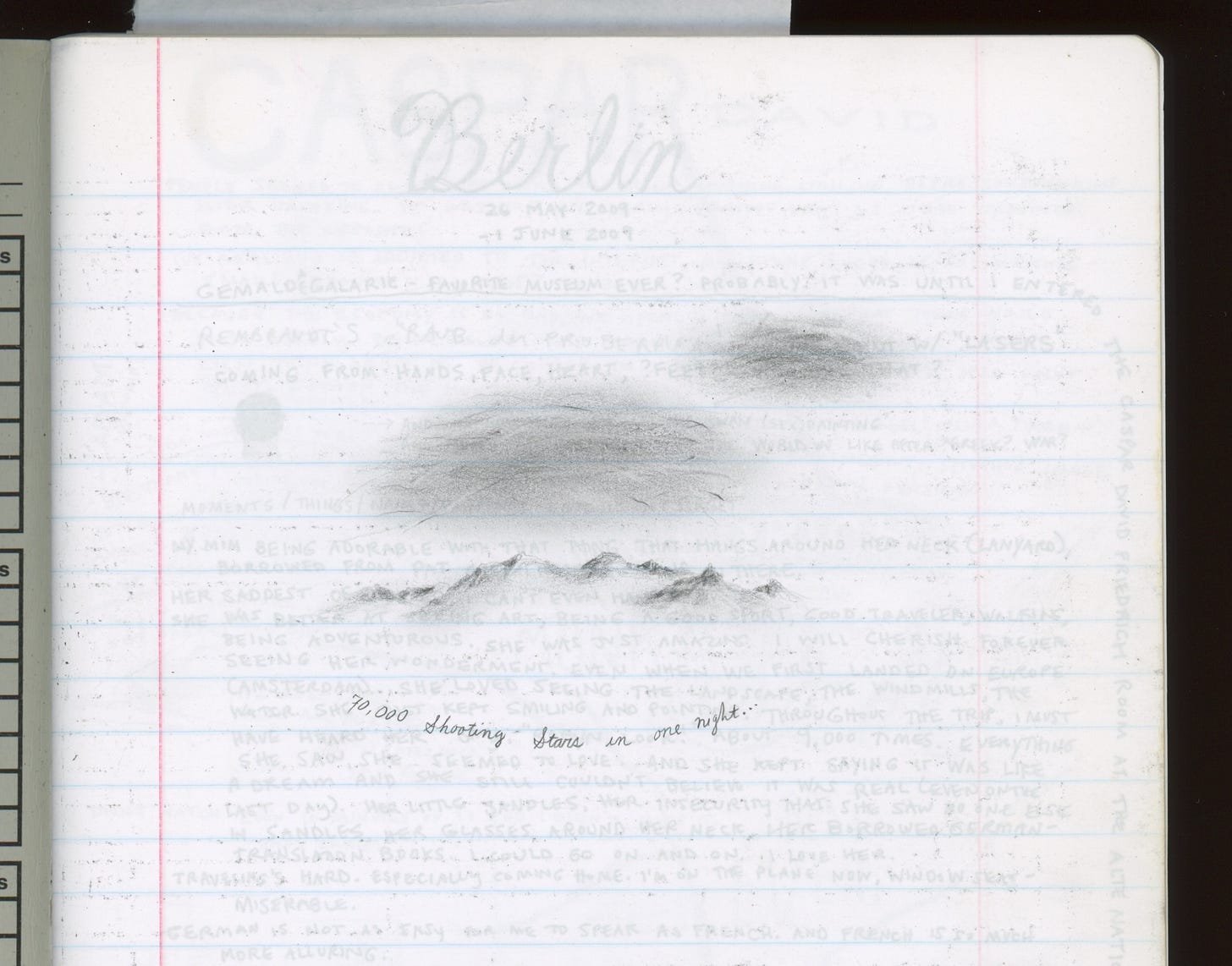Pages from My Composition Books, Volume 8
It Could Have Been Worse
“It could have been worse.” - my proposed epitaph
I wrote/drew this in my composition book in late 2010, while fortunate enough to briefly live in Dublin, Ireland, making my first and only film, WE, THE MASSES with director Eoghan Kidney. This notebook page was prompted by a phone call I received about an emergency happening back home in Texas, but being that there was absolutely nothing I could do about it 4,459 miles away, I was able to enter into a stunned “I’m Powerless” mode without much effort.
I remember hanging up the phone and taking in everything around me within the bleak room I was staying: a 1980’s box TV that showed only one channel with endless runs of the worst show ever created Two and a Half Men, my always drunk landlord yelling at somebody down the hall and then laughing maniacally, a probably-too-old-to-eat egg sandwich I got at the corner store that morning sitting on the nightstand (an old box), and a pile of taxes I was already late to complete scattered all over my bed.
For whatever reason, my brain disengaged from the nightmare still-life before me and imagined a way worse scenario - something akin to being in Buffalo Bill’s dungeon in Silence of the Lambs. Suddenly, the catastrophe back home seemed trivial in comparison, the surroundings became almost glamorous, the words “It could have been worse” came to me, and I drew the image of my future headstone next to feverish tax calculations. I ate the sandwich.
As New Year’s Eve approached and passed last week, I received several messages from people who expressed appreciation for my having introduced them to a Patricia Highsmith journal entry that’s meant a lot to me throughout the years.
“My New Year’s Eve Toast: To all the devils, lusts, passions, greeds, envies, loves, hates, strange desires, enemies ghostly and real, the army of memories, with which I do battle - may they never give me peace.”
This was the first year I didn’t share the quote with my podcast listeners, instagram followers, or friends. I remember always being psyched as the New Year approached, not because of resolutions or wild parties, but because I would have another prime moment to share the quote - a sentiment that not only resonated with me, but one I thought was noble to embrace.
Until this year.
Suddenly, without warning, the Highsmith quote seemed problematic and almost scary. I didn’t like it anymore. The me of today doesn’t want to celebrate that which plagues me. I DO want peace. I need it desperately.
Patricia Highsmith was twenty-six when she wrote the journal entry that contains the quote, and that seems about right. At that age, everything feels new, raw and inspiring. The crazier the experience, the better. Drama is more exciting than tranquility. But, at a certain age, at least for me, the turmoil is exhausting. Highsmith lived to be seventy-four, and I’m going to wager a bet that she herself might not have identified with this most-likely drunken journal entry from her twenties.
If I were to be so bold as to edit the Highsmith quote, here’s how I’d say it as a forty-seven year old in terrible health, with severe mental health issues, and a career that’s certainly seen better days:
My New Year’s Eve Toast: to all the disappointments, diagnoses, horrors, losses, resentments, enemies ghostly and real, the relentless deluge of obsessions and memories with which I actively try to rid myself of 24/7 to no avail - may they all swiftly dematerialize and send me their replacements, which I’m sure will be: good news, unconditional love, understanding & supportive relationships, forgiveness, peace of mind, ease of being, abundance, appreciation, a body that works right, and overflowing blessings for all of the people I love so dearly.
Her sentence is better, the attitude is undeniably cooler, and I am still devoted to it as a piece of writing. But my rewrite is - well, it’s simply how I feel at this point in my life. How do you feel? Inspired and charged by the painful complexities of life, or weary of the difficult and wanting something closer to tranquil? I guess we could be both, but not me. I’m too tired.
Sometime in my early 30’s, I came up with, and actually started writing, an anti self-help book titled, The Quest for Inner Calm and Why I Purposefully Lost. I was under the impression, as are many young art people, that my demons are what made my work interesting, strong, unique…that every time I attempted to feel better, I became more boring and less inclined to make quality work. I had therapists and other people try to explain that unless I did manage to get better, I would no longer be around to make any of that “interesting” artwork. They were right, I was wrong.
But it is what it is. I wasted a lot of my life resigned to a certain misery. I didn’t grow up in the age, or an environment for that matter, where healing and self-care were in vogue, normalized, encouraged. But we’re all here now, baby. And I’m trying really hard to not weigh this fact against the statistics I’ve read about depression and anxiety increasing rapidly year after year after yet another year.
I remember also, in years past, relating to this Werner Herzog quote: “I have never been one of those who cares about happiness. Happiness is a strange notion. I am just not made for it. It has never been a goal of mine; I do not think in those terms.”
Here’s my re-write on this one: “Happiness is inherently good and that’s all there is to say about it.”
As Joan Didion famously wrote in Slouching Towards Bethlehem, “...I think we are well-advised to keep on nodding terms with the people we used to be, whether we find them attractive company or not.” So I look back, wink, barely recognize myself, and then whisper the lines with which I end most ME READING STUFFs:
“We shall find peace. We shall hear angels, we shall see the sky sparkling with diamonds.”
That’s Anton Chekhov, I’m Robyn O’Neil and I wish you 70,000 shooting stars tonight and forever.
So much love, hope, happiness…all the things my heroes would scoff at,
Robyn








Forever your fan!
Whao this is good stuff Robyn!